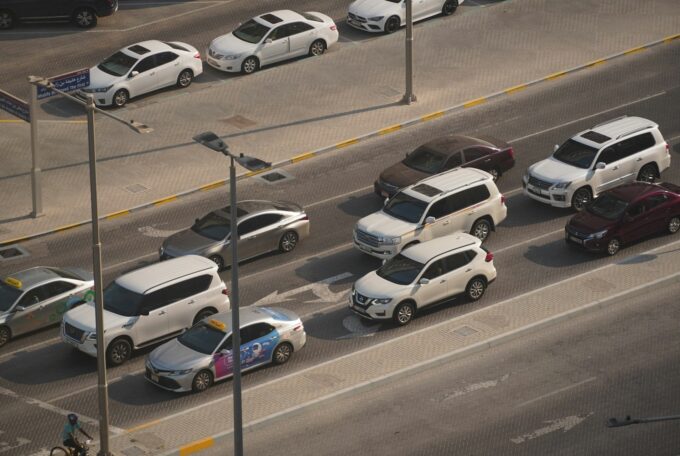Any driver who has ever been pulled over knows how stressful it can be, even if they’ve done nothing wrong. Your heart rate spikes, your mind races, and you’re not always sure what’s about to happen next. That’s why it’s important to know your rights before you ever find yourself in that situation. If you’re pulled over in Louisiana, there are a few key things you’re allowed to do, and just as many things you aren’t required to do. The more you understand what you’re entitled to, the more likely you’ll be treated fairly and avoid making simple mistakes that could hurt you later on.
Knowing your rights doesn’t mean being rude or refusing to cooperate. It just means being prepared. Not every officer will explain exactly why you’re being stopped unless you ask. Not every stop happens the same way either. But if you’ve been cited for speeding or another traffic offense in Louisiana, protecting yourself starts during the stop itself. Whether you’re a local or passing through, it’s worth learning what the law says you’re allowed to say or do.
Know Your Rights When Pulled Over
It’s easy to feel like you have no control during a traffic stop, especially if you’re on the side of a busy road with lights flashing behind you. But the truth is, you do have rights, and they apply every time a Louisiana officer pulls you over. These rights help protect you and keep the stop from turning into something more than it needs to be.
Here’s a breakdown of what you can rely on:
– You have the right to remain silent. You don’t need to explain where you’re going, where you’re coming from, or why you were driving a certain way. You are required to give your name, driver’s license, registration, and insurance, but that’s it. Politely let the officer know you choose not to answer questions.
– You can say no to a search. Unless the officer has a warrant or clear evidence of something illegal, they can’t search your vehicle without your permission. If they ask, you can tell them calmly, “I do not consent to a search.” That sentence could make a difference later.
– You have the right to ask why you were stopped. You don’t need to wait for an explanation. You’re allowed to ask, “Why did you pull me over?” Knowing the reason early helps you keep track of what’s happening, especially if you go to court later on.
These rights are protected under federal law, and Louisiana drivers should feel confident using them. Still, how you say things matters. Always stay respectful. Raising your voice or acting aggressive can change the tone of the stop and even lead to more serious charges or problems, even if you were in the right.
Imagine being pulled over for going 6 miles over the speed limit and the officer asks if they can check your trunk. If you say yes just to move things along, you’ve given up rights that might’ve helped you fight a search that wasn’t even based on anything legal. Being polite doesn’t mean letting go of your choices.
Knowing these simple rights can go a long way, especially when used clearly and calmly. A traffic stop might be short, but the outcome can stay with you much longer.
Tips For Handling A Traffic Stop
Even when you know your rights, how you handle yourself during the stop can shape the whole situation. Officers are trained to watch body language, tone, and reactions. How you respond once the lights go on can make things smoother or more stressful. Take a breath, slow down, and remember the steps below.
1. Keep your hands visible. As soon as you pull over, place your hands on the steering wheel. This keeps the officer at ease and shows you’re not hiding anything or reaching for something.
2. Stay calm and don’t argue. You can disagree with the stop without raising your voice or making the situation worse. If the citation seems unfair, defending your case comes later, not while you’re roadside.
3. Always have your documents ready. Louisiana law requires drivers to carry a valid license, registration, and proof of insurance. Keep them somewhere easy to access without digging around too much.
4. Avoid sudden movements. If you need to reach for something, like your wallet or glove box, let the officer know what you’re doing before you move. Say something like, “My license is in my back pocket” before reaching for it.
5. Stay in your vehicle unless told otherwise. Unless an officer tells you to step out, it’s safest to remain inside, windows down, and wait for instructions.
Even if you think the stop wasn’t fair or believe the officer made a mistake, don’t try to sort it out right then and there. The side of the road isn’t the place for legal arguments. Instead, focus on keeping things calm and getting through the stop safely. What happens during those few minutes can make a big difference later.
The right move isn’t always the easiest one in the heat of the moment, but staying composed, respectful, and aware of the steps above gives you a better shot at protecting yourself and your driving record.
Common Mistakes Drivers Make During Traffic Stops
Even when drivers understand the basic rules, it’s easy to get flustered and slip up when nerves kick in. What you do or say during a traffic stop sometimes matters more than the ticket itself. Small mistakes can lead to bigger problems, especially when it comes to speeding tickets in Louisiana.
One of the most common slip-ups is admitting guilt without thinking. Statements like “I didn’t realize I was going that fast” or “I was just keeping up with traffic” sound harmless but can hurt your defense later. These phrases might seem polite in the moment, yet they can count as confessions.
Here are a few other missteps drivers tend to make:
– Talking too much or trying to explain their side of the story
– Being disrespectful, sarcastic, or raising their voice
– Letting the officer search their car without being asked directly or without clarifying that they don’t consent
Another problem is not documenting the stop. If something feels off during the encounter, quietly taking note of details like the time, location, and officer’s badge number can help. Some drivers also use dashcams, which can provide a full picture of what happened without needing to rely on memory alone. This can come in handy later if someone’s rights were ignored or if there’s a disagreement about what was said or done.
Letting nerves run the show is easy to do and understandable. No one enjoys being pulled over. But small decisions made in the heat of the moment can shape what happens next. Being calm, saying less, and staying aware gives you the best chance to handle the situation smartly and protect yourself.
How A Louisiana Traffic Ticket Attorney Can Help
If you get a speeding ticket in Louisiana, you might think the easiest thing to do is just pay it. But paying a ticket is the same as admitting guilt. That can lead to higher insurance rates, points on your license, and in some cases, even a suspended license if you collect too many violations. That’s where a Louisiana traffic ticket attorney comes in.
An attorney who handles traffic cases across the state will first look over everything that happened during the stop. They’ll check if your rights were respected and whether the traffic stop was done fairly. If there’s an error in how the citation was written, how the officer handled the stop, or what was said, that can help build a solid defense.
Other ways an attorney can help include:
– Making sure the officer had reason to stop you in the first place
– Asking questions about how the radar or speed device was used
– Finding problems in the legal process that may dismiss or reduce your ticket
In one case, a driver on I-10 was ticketed for going well over the speed limit but claimed the officer never explained why they were pulled over or showed how the speed was measured. An attorney dove into the officer’s training records and the way radar tools were being used by that department. That opened the door to challenging the citation and saved the driver from a major fine.
Every ticket is different, and how a stop plays out can change things a lot. Having someone who knows Louisiana traffic law by your side gives you a better shot at keeping that citation from affecting your record long-term.
Protect Your Rights on the Road
Speeding tickets may seem small, but they can cause big problems if you don’t handle them the right way. Knowing your rights before, during, and after a stop puts you in a stronger position. It also helps you avoid mistakes that could cost you money, license points, and peace of mind later on. Louisiana drivers need to be more than just good behind the wheel. They need to be smart when stopped by law enforcement, too.
You don’t need to memorize legal code or argue with an officer, but remembering the basics goes a long way. Stay calm. Be polite. Ask questions when needed. If something doesn’t feel right, don’t ignore it. When your driving record is at stake, the best thing you can do is protect it from the very beginning. When in doubt, get help from someone who deals with these cases every day and understands the road you’re on.
When facing the uncertainty of a traffic stop and the possibility of a speeding ticket, it’s important to have someone on your side who understands the ins and outs of traffic law. Don’t let a ticket impact your driving record or insurance rates. Understanding your rights and getting expert advice can make all the difference. If you’re looking for guidance, a Louisiana traffic ticket attorney can help you navigate the legal process with confidence. At LouisianaSpeedingTicket.com, we’re here to support you every step of the way.





